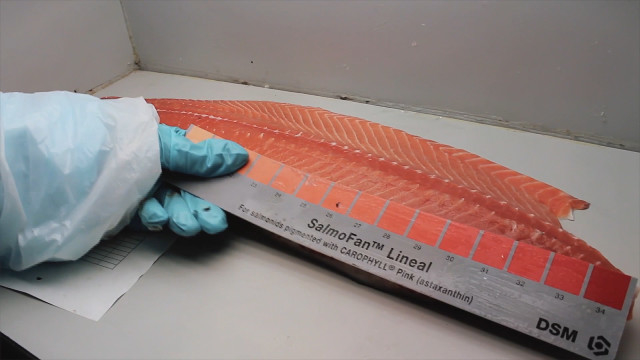The world consumes so much salmon these days that most of it has to be raised on farms to keep up with demand.
And depending on who you talk to, farm raised salmon can either be a healthy and efficient way of feeding the world or a threat to the environment that should be avoided by consumers.
Worldwide consumption of salmon has tripled in the last 30 years. According to the World Wildlife Fund 70 percent of salmon is raised in the netted water pens of salmon farms.
However, environmentalists and critics of salmon farming contend the farms are “unsustainable” for several reasons. They believe the farms pollute the seabed, that packing fish in water pens raises the risk of spreading disease to wild caught salmon populations. Critics point to flare-ups of a deadly disease known as Infectious Salmon Anemia or ISA around salmon farms in Norway, Chile and the eastern coast of Canada.
Mike Kirsch reports from Port Hardy in British Columbia, a salmon farming community that is part of a worldwide debate.
Mike speaks to salmon farmers, fishermen and politicians who all speak about the importance of these fish farms to the livelihood of their town. Mike also visits with members of an organization called First Nation who stage protests to oppose salmon farming. Biologist Alexandra Morton, also an opponent of salmon farming, tells Mike Kirsch what she is doing to test salmon for disease and bring more attention to the issue. Including making a film called Salmon Confidential.
Follow Salmon Farmers Association on This Website and Twitter @BCSalmonFarmers
Follow biologist Alexandra Morton online, and on Twitter @alex4salmon

 CGTN America
CGTN America
